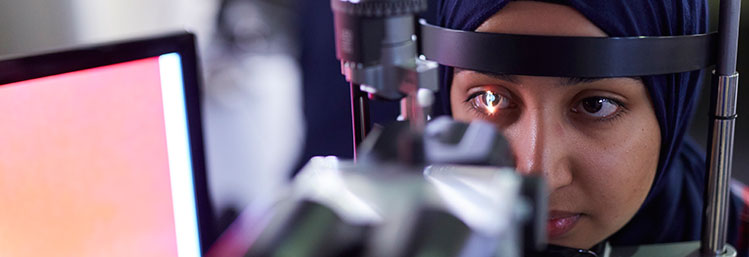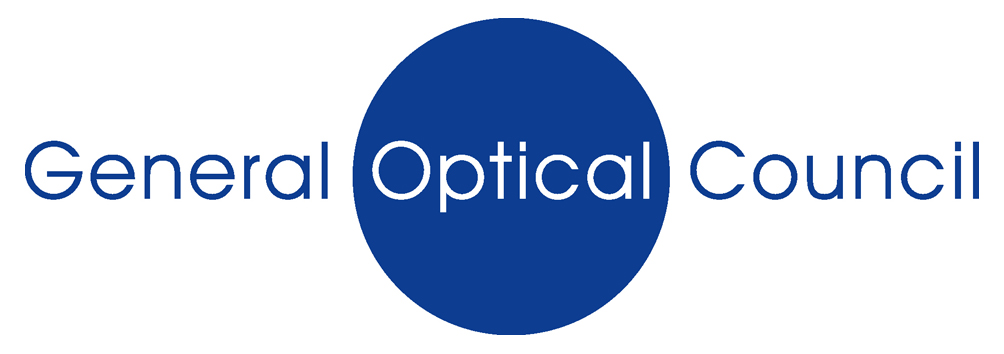
Master of Optometry
MOptom (Hons)
- Typical offer for 2025
- Duration
- UCAS code
- Start date
- Location
Suitable for applications.
Teaching, learning and assessment
A wide variety of teaching methods are employed throughout the programme, including lectures, seminars, practical sessions and clinical supervision. They focus progressively on student-centred approaches to learning - you are expected to take increasing responsibility for your learning as you progress through the programme.
A range of assessment methods are used for each module. All modules include both formative and summative assessments. Formative assessment has a developmental purpose and is designed to help you learn more effectively by giving you feedback on your performance and on how it can be improved and/or maintained. Summative assessment for each module includes written exams, whilst many modules will require you to demonstrate practical or clinical ability or competence.
The course is clinically-focussed from the start. You will learn all the practical techniques, theoretical underpinnings, professionalism and communication skills required to qualify as an optometrist.
You will be taught at one of the UK’s longest-established optometry schools by academics and tutors who are experts in their fields. Our world-class teaching facilities have recently been refurbished with £1.2 million of new state-of-the-art equipment and include an integrated eye clinic and our unique Directed Learning Suites.
Our course is renowned for its clinical emphasis and these skills are taught right from the start of the course. You will learn the essential skills required of an optometrist during years 1 and 2, before progressing to gain experience, under expert supervision, in the University’s own eye clinic in year 3. You will then proceed into a 44-week extended clinical placement delivered in partnership with the College of Optometrists in year 4.
The extended clinical placement is a period of paid employment within optometric practice, external to the University. You will be responsible for applying for and securing this placement with the support of the College of Optometrists and the University’s Career and Employability service.
Study support
Research
Terms and conditions of study
The University has a set of terms and conditions for all students accepting an offer to study on a course here at Bradford. This is called The Student Contract. This document sets out the Terms and Conditions which apply when you accept an offer of a place on a programme of study at the University of Bradford.
View our Student Contract for further details.
Transparency statement
Information about this programme and its modules has been published in advance of the academic year to which it applies. Every effort has been made to ensure that the information is accurate at the time of publication, but changes may occur given the interval between publishing and commencement of teaching. Any change which impacts the terms and conditions of an applicant’s offer will be communicated to them.

